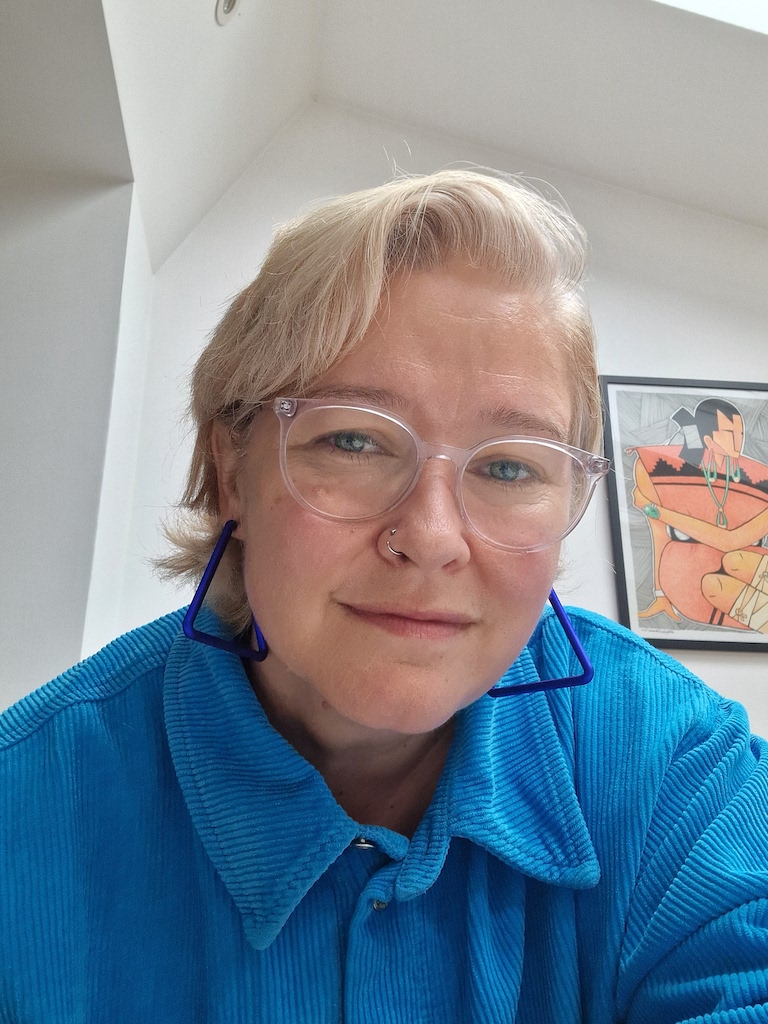A new report for Lesbian Visibility Week highights the progress made for lesbian and queer women at work. (Getty Images/PinkNews)
New research highlights the progress made for lesbian, bi and queer women and trans people when it comes to being authentic at work. But a significant minority still feel workplace authenticity is a distant dream.
The findings come from The Diva Survey: Catalysing Change. Conducted by Kantar for Lesbian Visibility Week, the study collected data from 2,101 respondents in the UK, the US, India and South Africa.
Nearly three-quarters (73 per cent) of the LGBTQ+ women and trans people surveyed agreed or strongly agreed that they could be their authentic selves at work. But 11 per cent disagreed or strongly disagreed with that statement.
Similarly, 74 per cent of those surveyed believed they have the same opportunities to advance their careers as their colleagues, but 13 per cent said they don’t see those chances.
Regarding workplace safety, 68 per cent of LGBTQ+ women and trans people said they feel safe and 76 per cent agreed that they felt socially accepted at work.
A sign of progress, but more work needs to be done
The data tells a positive story about queer women and trans people who are increasingly comfortable and confident being out in UK workplaces. For many within that community, feeling safe, accepted and being treated fairly is now normal – a sign of the progress made in the UK over the past decade.
However, for a significant minority, being out and authentic at work is still not safe or accepted. This group of colleagues can never let their guard down in the working world.
More than 12 per cent of respondents said that they had experienced or witnessed inappropriate comments or conduct at work, and 10 per cent had experienced or witnessed verbal harassment and misgendering of trans people.
However, only two per cent reported experiencing or witnessing sexual harassment.
‘We like to think the world is kinder than it is’
The data is a “confirmation” and “making something visible that is my life experience”, Nancy Kelley, the director of Lesbian Visibility Week, told PinkNews.
“I’ve seen people get homophobically and lesbophobically abused, I’ve been lesbophobically abused. I’ve been told to ‘rein it in [and] tone it down’ and that being out may affect my career.”
Queer women and trans people in the labour market will recognise both the positive and negative aspects of the report. It’s people outside the community who will be “shocked” by the data, she added.
“We like to think that the world is kinder and more equal than it is, and we have a tendency to think that if something’s not affecting us, then it’s not affecting others.”

How solidarity and allyship can intersect
While the responsibility of a discrimination-free workplace falls on the employer, colleagues (both queer and straight) have to support their queer women and trans colleagues.
“Anything that improves the position of women will improve not only the position of LGBTQ+ women, it will improve the position of all LGBTQ+ people,” Kelley said.
“The same is true in the other direction. When you throw all your effort behind supporting actions towards trans and lesbian inclusion in the workplace, it will improve the position of all women in the workplace.”
There is a lot of open space for good and honest allyship, she believes.
“Do the learning, understand the community without asking the community to teach you and be the person that just steps in,” she urged.
“One of the things I always say about allyship is that sometimes people think they have to be an expert. You don’t have to be an expert.”
Demonstrating honest allyship doesn’t equate to recounting the history of LGBTQ+ in the workplace, it can start with calling out discrimination and micro-aggressions.
“Anybody can be involved in championing and supporting organisational change that benefits our community. We just have to be prepared to stand alongside people.”
Lesbian Visibility Week runs until Sunday (28 April).
